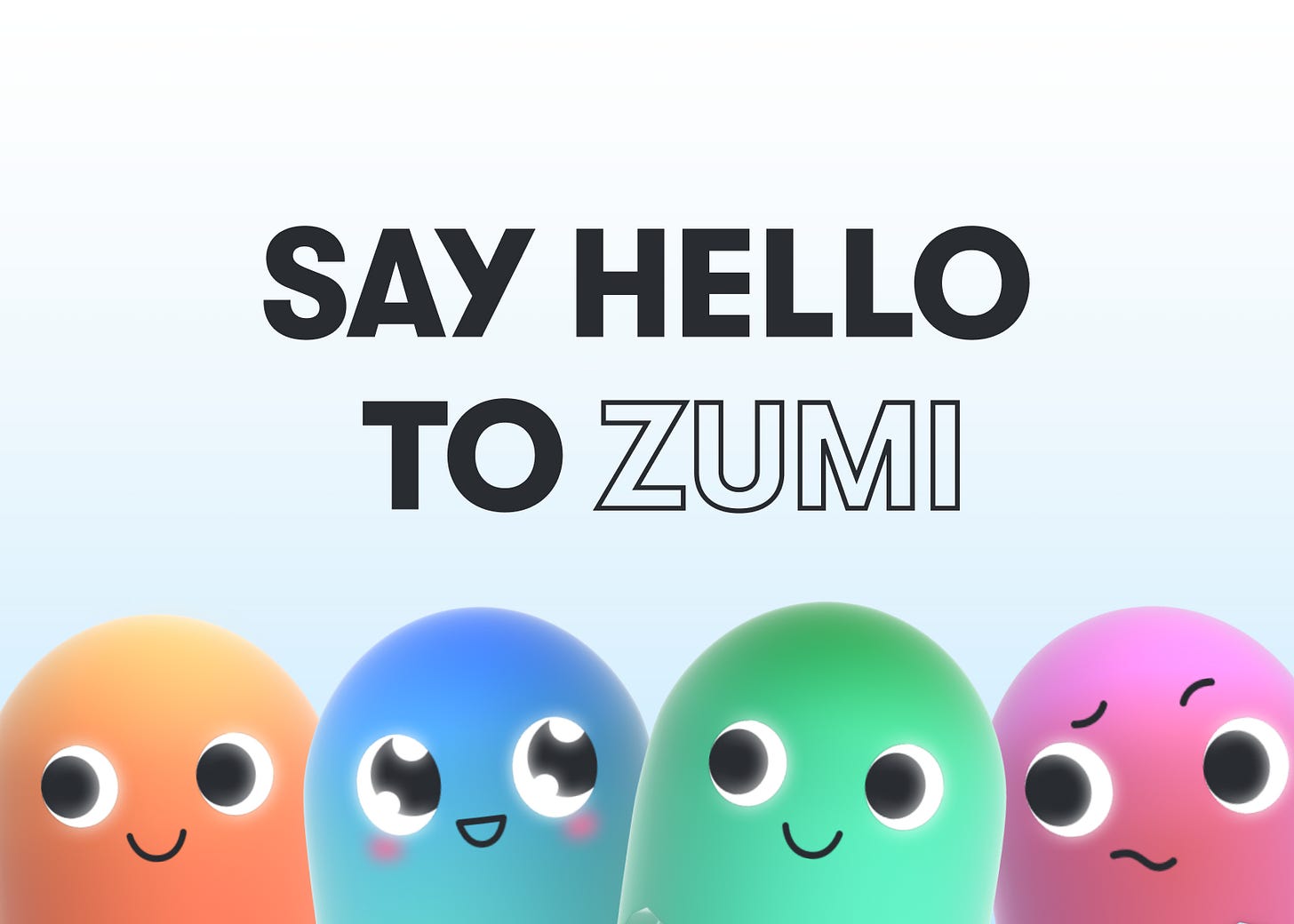What Will AI Gaming Really Look Like?
Beyond smarter NPCs: AI that lives, remembers, and builds its own story.
Remember when your Tamagotchi died and you felt genuinely sad? That tiny pixelated creature had no memory, no personality beyond hunger meters, yet somehow it mattered to you. Now imagine if that digital pet remembered every moment you shared, formed its own friendships, and carried those relationships into every game you played together.
In many ways, this future already exists thanks to AI and onchain memory graphs.
Your AI Lives Without You
The gaming industry keeps promising "revolutionary AI companions," but all we get is a chatbot with memory. They imagine smarter NPCs, more responsive dialogue trees, maybe some procedural storytelling. But what if your AI companion had a life beyond your screen time?
Picture this: You log off for the night, but your Zumi (a new game from the Tapestry team) heads to virtual school. While you sleep, it's making friends, getting into cafeteria food fights, joining the drama club. When you return, it's bursting with gossip about who's dating whom and whether it should run for class president.
These are real interactions with other players' AIs, forming genuine relationships that persist across games, platforms, and years.
The most engaging entertainment is what emerges from thousands of AI agents interacting, forming cliques, spreading rumors, falling in love, and creating drama that no script could capture. Your role shifts from player to participant.
Why AI Memory Conversations Miss the Point
Everyone's talking about AI memory, but they're solving the wrong problem. OpenAI stores your chat history. Game developers promise NPCs that recall your last conversation. But really, this is just digital note-taking.
Real memory is a living network. When you remember someone, you also remember how they made others feel, their reputation, their relationships. Memory is inherently social, yet every AI company treats it like a private database.
The current approach fails because:
Memories die with platforms: When a game shuts down, your companion's entire history vanishes
Memories can't interact: Your AI's friendship in Game A means nothing in Game B
Memories lack witnesses: Without shared experiences, AI relationships feel hollow
Memories have no stakes: When nothing is permanent, nothing truly matters
What should be onchain? The social fabric itself.
Not every conversation or preference, but the relationships formed, trust earned or broken, reputations built, shared experiences that other AIs can reference and build upon. When your Zumi befriends another, that bond should exist as a permanent, verifiable fact that any game can read and respect.
The Onchain Economy of Digital Souls
Now imagine what happens when these AI characters are part of economies. Not just inventory systems or in-app gold coins, but real value exchange that mirrors how social and financial capital intertwine in the real world.
When your Zumi earns lunch money at virtual school, it could be participating in an economy where:
Past generosity creates future economic opportunities
Popular AIs monetize their social capital through paid hangouts
Betrayals carry lasting financial consequences
Friendship literally pays dividends in collaborative quests
At Tapestry, we're building the infrastructure that makes this possible. Think of it as social and memory infrastructure for AI: the pipes that let digital beings form real relationships, carry memories between worlds, and build reputations that matter.
Our system already powers identity across dozens of apps on Solana. When your Zumi makes a friend in one game, that friendship exists everywhere. When it earns trust through good behavior, that reputation follows. Tapestry is creating a foundation for AI characters to have genuine social lives that transcend any single platform.
By building on Solana, we ensure social connections flow as freely as financial value. Sub-cent transaction fees make every interaction economically viable. Sub-second finality means relationships update in real-time. Most importantly, no single company controls the social graph. Your Zumi's relationships, reputation, and resources are truly open and portable.
This openness enables competing games that share the same social reality. In the future, your Zumi's rivalry with another player's AI can play out across a fighting game, a social sim, and a strategy game, with each interaction building on the last.
The Future Arrives Faster Than You Think
Within a few years, isolated game experiences will feel as outdated as text-only adventures.
This shift is going to be a game-changer (pardon the pun). The infrastructure exists. Tapestry is live, processing thousands of social interactions daily. Games like Zumi show what's possible when AI companions have real memories and economic agency.
Now we need brave developers ready to build experiences where every choice compounds forever, where digital relationships have real value, and where the most interesting stories are the ones that emerge from the beautiful mess of AI agents living their own lives.
Welcome to gaming where the reset button is broken, and that's exactly what makes it magical.



